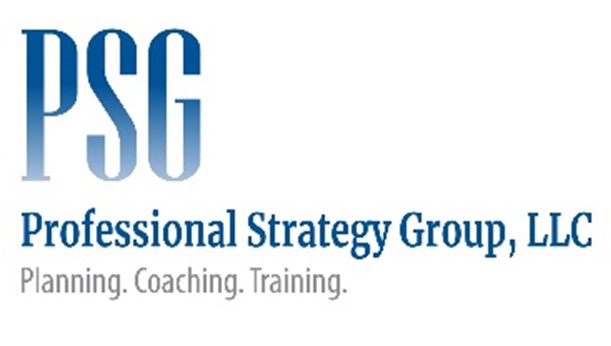In practically every CPA firm, you can count on many different generations being represented and, with that, several different communication styles. The way you communicate to millennials versus Generation X versus Boomers can create unique challenges each time. Whereas some people want facts delivered to them in a “give it to me straight” approach, you may need to change how you deliver feedback to others.
This begs the question: What does your CPA firm do to become more adaptable and, as a result, more effective in how your team members communicate to others?
1: Embrace The Face-To-Face
Let’s begin with some myth-busting here.
As we speak about generation gaps, don’t jump to assumptions just yet – you may find there to be some surprises to help your messaging resonate when it matters most.
For example, everybody believes Millennials are always stuck on their phones and love to text. Yet, a few years ago, IBM did a study on the various generations and, as it turns out, on many issues, Millennials are much more closer in nature to Boomers than to Generation X, the one that immediately precedes them.
Namely, Millennials desire face-to-face and immediate feedback – just like their Boomer counterparts.
The moral is this: If you really want to know what’s going on in people’s minds and what their motivations are, you have to reach them on their ground. Provide immediate feedback when staffers finish projects. First, spend time on what they did well. Ask them what they feel they could have done better. Ask what they plan on doing differently the next time they find themselves in a similar situation. Let them know that you are always there to help them become better professionals. However, you have to let them know that you always expect them to do their best work. The standard should be that the work product is ready to go to the client when they are finished. You and they know that their work will always be reviewed, but they should always try to achieve a level of excellence.
2: Set Expectations Proactively
To put your firm in the best position to adjust to changing client demands, your team must be more proactive than reactive when providing client service. Partners like yourself need to set expectations with your team members on how we are going to serve our clients. You can’t do everything or as timely as you want due to being already committed to someone else. Therefore, sometimes other team members need to reach out to clients and try to serve their needs. For example, the Partner asked me to call because he/she is tied up until tomorrow. Is there anything I can do to help you now? If the client agrees, the team member should let the client know that they will involve you or keep you informed throughout the project.
Set expectations with your clients as well. Make sure you communicate scope, timing, deliverables and fees with the clients at the start of every project. Call them and provide reports as the work progresses. Let them know as soon as possible if the project starts to go out of scope and discuss any additional fees. Your job (and your teams’ job) is to ensure client satisfaction on every project.
How we communicate with clients has likely changed permanently as a result of the pandemic. More clients these days are very comfortable asking questions of you not only via email but via text as well. If there’s one thing that pandemic has changed, it’s the notion that we can simply return to the day and age of having phone calls alone. Your clients are used to Zoom. FaceTime. Teams. Meet. So as much as possible, you need to let your clients see you. Use the technologies available to you to help build stronger client relationships. Simply put, we’re not going back to the way we communicated before.
3: Foster Inclusion Of Other Team Members
One of the significant Achilles heels of accounting firms is making the person at the top of a specific account, such as a Partner, the most visible person at the expense of others. Everybody knows you, internally and externally. And many times, you act as a gatekeeper on your accounts because you see the accounts as your own.
Yet, there will come a time when a handoff MUST occur. You can’t avoid this. It will need to be transitioned and there should be a solid process for laying the groundwork in which that perfect handoff (or at least a partial handoff) can occur so the firm maintains its relationship with the client.
Here’s what we mean by that: The introduction of a Senior Manager’s increased role on an account must be done in a delicate, deliberate way that gives the client a heads-up of a pending transition, even if you don’t say it explicitly.
“Meet John. He’s one of our Senior Managers and I think it’s just a matter of time before his talents make him a Partner. I asked him to join us today because he’ll be an asset to us in terms of…”
“Sandra is a very talented Senior Manager on my team. I’d like to delegate with certain responsibilities on your account to her, so don’t be surprised if you hear from her on some matters instead of me.”
The last thing you want to do is say, “I’m retiring next week, but you’re in good hands with Luke here.” The client hasn’t seen Luke, doesn’t know Luke from a stranger on the street and has no idea how well Luke understands their business. And now you’re going to put him as the point of contact without any setup? Uh oh. That’s a recipe for a ticked-off client and it will act as a trigger for requesting RFPs from other firms.
Assuming you’ve laid the foundation for it, you can approach the client with something like this:
“You know, Bill, we’ve talked about me taking a step back from the day-to-day matters involving your account. Don’t worry, I’ll still be around and you can always call me. But I’m excited that Laurie, who you’ve dealt with a lot in the last six months, is going to make Partner soon. We would like her to become your daily point of contact. I think she’s going to do a marvellous job and I know you’ll be delighted working with her. She’s as sharp as they come.”
Wow! What a setup for Laurie! She’s been given the seal of approval from a trusted source and the client can see the transition coming down the road before it happens.
This is an excellent opportunity for CPA firms to turn an area of vulnerability into a strength if they can identify a successor long before a transition needs to happen. Knowing what each client expects and then delivering outstanding service is the key to long-lasting and profitable client relationships.
Good thing Professional Service Group has precisely what you can supply them in this circumstance: Our Superior Client Service workshop.
Imagine how far your team can go when they have so much better of a sense of how your clients want to be served, how they can strongly cross-sell other services of the firm and more. Now let’s set them up for success for real. Discover how we can bring the Superior Client Service workshop to your firm when you call us at 312.860.0873 or email jimbrasher@professionalstrategygroup.com.




